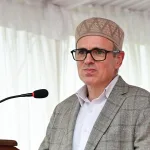MY MIND MY RIGHT
There can be no health without mental health, despite this clear evidence nowhere in the world does mental health enjoy parity with physical health in budgets, policies, and practice. According to World Health Organization, Mental Health Atlas, globally it is estimated that less than 7 percent of health budgets is allocated to address mental health. Persons with mental illness constitute a vulnerable section of society and families bear financial hardship, emotional and social burden of providing treatment and care for their Relatives with mental illness, therefore it has contributed to human rights violations. WHO defines health “As a state of complete physical, mental and social well-being and not merely the absence of disease or infirmity.” The International Covenant on Economic, Social and Cultural Rights provides a legally binding framework for the right to the highest attainable standard of mental health, same is complemented by International legal standards by the Convention on the Rights of Person with Disabilities, the Convention for the Elimination of All Forms of Discrimination against women, the Convention on the Rights of Children.
With the adoption of Sustainable Development Goals (2030) – Mental health is emerging as a Basic human right. Goal 3 sustainable development- 2030 includes the promotion of mental health. India ratified the CRPD in 2007 and therefore the need to amend the Mental Health Act (1987) was felt as it could not protect the rights of person with mental illness and a new legislation Mental HealthCare Act 2017 was enacted. The Mental HealthCare Act 2017 provides to protect, promote, and fulfill the rights of such persons, recovery, rehabilitation, and full participation in society, now right to mental health also includes a right to integration and treatment in the community with support to live independently and to exercise legal capacity. In order to provide better mental healthcare there must be the obligation of international cooperation for the right to mental health which includes rights based mental health practices and policies, at the same time in the delivery of mental health care and services.
The effective realization of the right to mental health requires Participation, Non-discrimination, Accountability and Availability, accessibility, acceptability quality of mental health care and services. Every year on October 10, World Mental Health Day is commemorated with the overarching goals of increasing awareness of mental health concerns worldwide and mobilizing support for mental health. To advance knowledge, increase awareness, and inspire activities that promote and defend everyone’s mental health as a universal human right, people and communities can come together this year under the theme “Mental health is a universal human right.”
Issues and obstacles in enjoying the Right to mental health
Human rights abuses against people with mental health issues occur all throughout the world. They frequently experience social exclusion as a result of the stigma they bear, and as a result, they are unable to access the treatment, resources, and support they need to live full lives in the community. Never should a person’s mental health condition serve as justification for denying them their human rights or for keeping them out of discussions about their own health. Yet people with mental health issues continue to be subjected to a variety of human rights violations on a global scale. Many people are excluded from communal life and subjected to discrimination, while many more are either unable to receive the necessary mental health care or can only access care that infringes on their human rights.
As we are aware of the fact that the lack of doctors puts a great deal of demand on the current healthcare facilities and limits the amount of time that doctors can spend with patients. But every person has the right to use mental health services managed or supported by the relevant Government, including access to care and treatment. The right to access mental healthcare and treatment shall mean mental health services that are provided without discrimination on the basis of gender, sex, sexual orientation, religion, culture, caste, social or political beliefs, class, disability or any other basis, at an affordable cost, of good quality, available in sufficient quantity, accessible geographically, or any other basis. The government shall provide appropriate services that people with mental illness may need in an adequate manner.
How can these violations be prevented?
- Protect and ensure the full and equal enjoyment of all human rights of people with disabilities as per the law of the land.
- Change public attitudes and raise awareness towards mental illnesses as well towards persons with mental illnesses.
- Raise awareness against inhuman and degrading treatment of persons with mental illness.
- Empower people with mental health conditions and their families.
- Mental health services need to link to services and supports in the community.
Increase investment in mental health for mental health workforce for good quality mental health services that promote recovery and respect for human rights. - Education and the role of mass media for creating awareness about mental health problems and their possible interventions.
- Psycho education/awareness for patients/ masses/ family members.
- Reduce the Stigma.
- Care for rights of Persons with Mental illnesses.
- Awareness/ Knowledge/ accessibility/Use of modern technology for the welfare of the patients and their care givers.
We are aware that negative obstacles to mental health continue to exist in our homes, schools, and places of employment. But we owe to safeguard, support, and uphold mental health in our homes, neighborhoods and in our communities.
(The Author is Consultant Psychiatrist, IMHANS-K)





